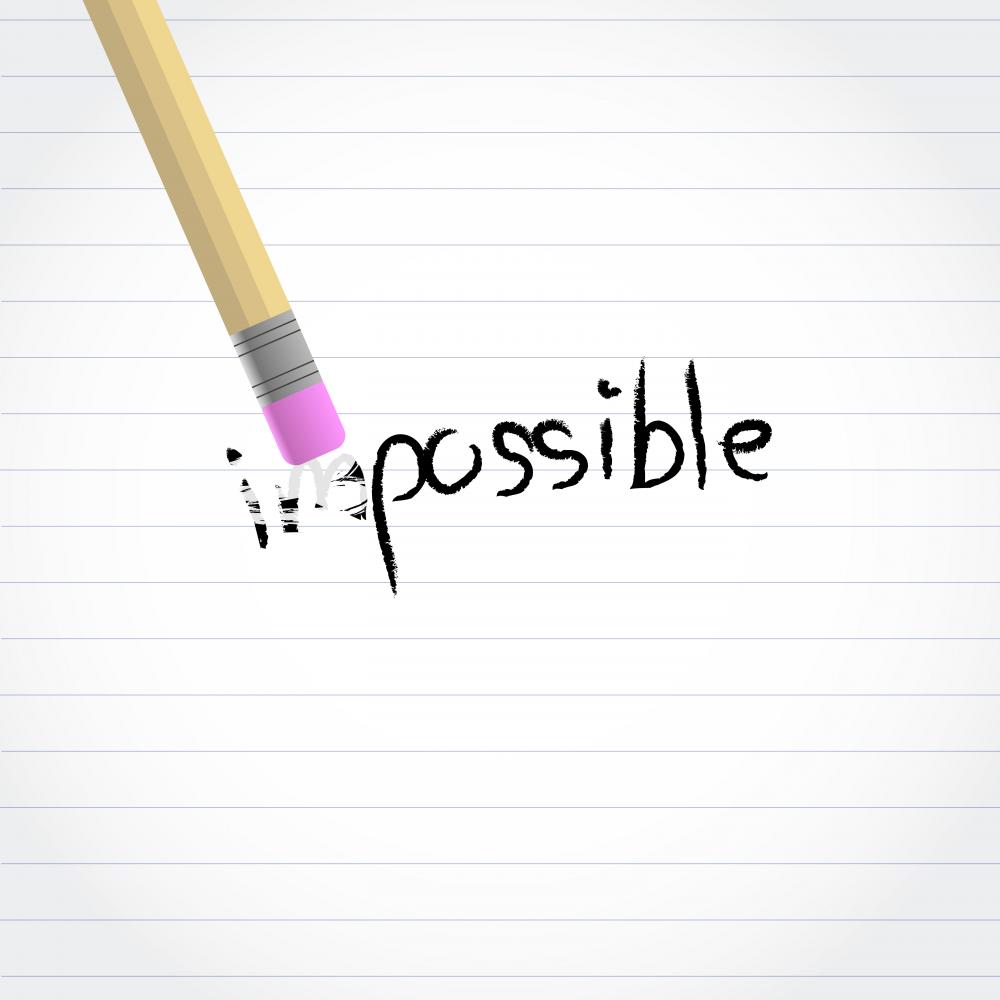Fostering Open Communication
Creating a climate where team members feel free to express their thoughts and ideas without fear is crucial for Building Trust in Teams. Those who engage in active listening and demonstrate empathy can help bridge gaps in understanding, paving the way for a collaborative environment. By encouraging open dialogue, organizations can ensure that every voice is heard and valued, which is essential for fostering a sense of belonging and mutual respect among team members.
Some teams find success through regular meetings where each member shares their progress, challenges, and perspectives. Such forums not only enhance alignment but also provide a platform for constructive feedback. The key is to cultivate an atmosphere where dissenting opinions are not only tolerated but welcomed as opportunities for growth and innovation. This commitment to open communication can transform team dynamics and lead to more robust decision-making processes.
- Create safe spaces for open dialogue.
- Encourage empathy and active listening.
- Facilitate regular feedback loops.
Cultivating a Culture of Transparency
Transparency is the backbone of trust within any team. When leaders model transparency by openly sharing information and decisions, they set the standard for team members to follow suit. This openness not only demystifies the decision-making process but also empowers individuals to take responsibility for their roles and contributions. By promoting transparency, teams can navigate conflicts more smoothly and develop stronger bonds of trust.
Transparency extends beyond the sharing of information; it also involves acknowledging mistakes and celebrating successes together. Teams that embrace a culture of transparency often find that their members are more engaged and committed to shared goals. This engagement can lead to higher productivity and a more cohesive team spirit.
Embracing Diverse Perspectives
Building Trust in Teams relies heavily on the acceptance and integration of diverse perspectives. When team members feel that their unique viewpoints contribute to a larger mission, they are more likely to feel valued and empowered. Diversity in thought and experience fosters creativity, leading to innovative solutions that might otherwise remain unexplored.
Leaders should strive to create environments where diversity is not only acknowledged but celebrated. This can involve inviting team members to actively participate in discussions where different ideas are presented and examined. Through embracing diversity, teams can uncover a multitude of approaches to problem-solving, all while strengthening the foundation of trust that holds them together.
Encouraging teams to harness the strengths that come from varied backgrounds can also minimize biases and foster a more inclusive atmosphere. When individuals see that their differences are a source of strength rather than division, trust grows exponentially, forming the basis of a dynamic and resilient team.
- Promote inclusivity and acceptance.
- Highlight the value of diverse ideas.
- Encourage cross-functional collaboration.
The Impact of Mutual Support
Within any successful team, mutual support is paramount. When team members consistently offer encouragement and assistance to one another, it cultivates an environment of trust and solidarity. This sense of mutual support not only boosts morale but also enhances each individual’s sense of belonging and purpose within the group.
Key to achieving this is the willingness of team members to step in and help each other during times of need. Whether through mentoring, sharing insights, or simply lending an ear, these acts of support can transform a team’s culture. A supportive environment encourages risk-taking and innovation as team members feel safe to explore new ideas without the fear of failure.
In building trust, cultivating this supportive network among team members helps overcome challenges and builds resilience. Teams that prioritize mutual support create a fertile ground for growth–personally, professionally, and collectively. The result is a tightly-knit team that thrives on shared objectives and a deep-seated trust in one another’s capabilities.

Fostering Communication and Collaboration
Effective communication is the cornerstone of leadership skills for community empowerment. Engaging with a diverse group of individuals requires a leader to not only understand the community dynamics but also keep the lines of communication open and transparent. Leaders who prioritize communication foster environments where diverse voices are heard, leading to more inclusive decision-making processes.
Leaders should aim to encourage dialogue, welcoming varied perspectives and creating a culture of collaboration. Regular town hall meetings, digital forums, and social media platforms can serve as effective tools to ensure every community member has a voice. By establishing these communication channels, leaders are better equipped to address community needs and co-create solutions with the people they aim to empower.
Personal anecdotes from seasoned community leaders often highlight the transformative power of shared conversations. One story from the Origen network describes how a shift towards open dialogue within a local community led to the discovery of untapped collective resources, ultimately leading to successful community revitalization projects. Such narratives underscore the vital role communication plays in community empowerment.
Nurturing Leadership through Education
Education is a vital pillar in cultivating leadership skills for community empowerment. By continuously seeking knowledge and understanding the latest methods in leadership, leaders can remain adaptable in addressing emerging challenges. Organizations like Origen emphasize educational opportunities to enhance skills, offering free courses that guide individuals from beginner to mastery levels.
Continuing education helps leaders to remain informed of innovative strategies and develop a deeper understanding of their communities. Engaging in workshops, webinars, and mentorship programs can empower leaders to adopt new perspectives and methodologies suited for the ever-evolving needs of their communities.
An inspirational story from Origen details how a community leader–by taking advantage of educational resources–successfully spearheaded a sustainability project. This example highlights how knowledge acquisition and sharing can spark significant community projects and encourage other members to take similar action.
In addition, embracing a mindset of lifelong learning enhances leaders’ capabilities to inspire and empower others. It aligns with Origen’s vision of creating bridges that connect individuals to resources for personal growth, ultimately fostering a stronger, more informed community network.
Instilling Accountability and Responsibility
Leadership skills for community empowerment are deeply rooted in accountability and responsibility. Leaders must demonstrate a commitment to their community by fostering trust and transparency. Accountability ensures that the community can rely on their leadership, thus strengthening the bonds within the community.
Being an accountable leader involves setting clear objectives and being transparent about both successes and mistakes. Responsible leaders inspire their communities by taking corrective actions when needed and leading by example. This is echoed in Origen’s core principles, where embracing radical self-responsibility is a step toward achieving true freedom and fulfillment.
Implementing accountability practices can include regular feedback loops, where community members are encouraged to share their insights and experiences. This feedback not only holds leaders accountable but also empowers community members by involving them in the decision-making processes.
A remarkable instance from Origen’s community initiatives demonstrated how accountability can transform leadership dynamics. By instituting structured feedback mechanisms, community leaders were able to pivot strategies swiftly, resulting in more effective outcomes and increased trust among members. The approach of viewing accountability as a journey rather than a destination can lead to more resilient and empowered communities.
Embracing Diverse Perspectives and Adaptability
To truly harness leadership skills for community empowerment, embracing diverse perspectives and fostering adaptability is paramount. Community leaders should aim to cultivate an inclusive environment where varied voices contribute to the collective narrative and drive progress.
Diversity enriches the community fabric and introduces a mosaic of ideas and solutions. Leaders who prioritize diversity are better equipped to navigate complex social dynamics and nurture an environment conducive to innovation. By actively seeking and valuing different perspectives, they model adaptability and encourage others to do the same.
The Importance of a Strong Community
Engaging Community Members is at the heart of creating a vibrant and supportive network that fosters health and vitality. In a world where individuals often feel disconnected, having a place to belong can lead to a profound sense of fulfillment. Origen, through its dedication to community-building, taps into this need by offering a space where members feel valued and connected. Striking a balance between personal growth and community support nurtures an environment where each individual’s journey becomes an inspiration for others.
Community engagement does not just happen overnight. It requires a commitment to building relationships that are authentic and meaningful. Origen believes that by cultivating these connections, members can achieve optimal health and true freedom. This approach encourages individuals to share their stories, enhancing the sense of belonging and facilitating a space for mutual growth and empowerment. Engaging Community Members is not just an organizational goal but a movement towards a more interconnected world.
Personal Growth Through Community
Origen’s approach to engaging Community Members transcends the typical organizational framework by emphasizing personal empowerment through collective wisdom. Through a variety of platforms and resources, Origen offers opportunities for individuals to explore new perspectives and find their true potential. Members are encouraged to delve deeply into their personal development while drawing support and inspiration from those who have walked the path before them.
The Freedom Method exemplifies Origen’s strategy, allowing individuals to embark on a transformative journey. By embracing radical self-responsibility, participants learn how to navigate challenges with resilience and grace. This method is not merely about individual transformation but also about uplifting the entire community. When members share their experiences and breakthroughs, they become catalysts for change, sparking hope and inspiration among their peers.
In engaging Community Members, Origen fosters an environment where collective goals are met through individual achievements. Members work towards personal growth, which in turn empowers the larger group, creating a ripple effect that extends beyond the community itself. This interconnectedness is central to Origen’s mission of bridging individuals to a new operating system of freedom and fulfillment.
Sustainable Community Development
At Origen, sustainability is a cornerstone of engaging Community Members. The organization promotes eco-friendly practices and mindfulness, ensuring that the journey toward health and vitality respects our planet. By integrating green initiatives and educational resources, Origen empowers members to make conscious choices that benefit both themselves and the Earth. This holistic approach ensures that growth is not only personal but also planetary.
Moreover, leadership skills play a vital role in sustainable community development. Origen provides tools and workshops aimed at enhancing these skills, enabling members to take proactive roles within the community. Leadership is not just about guiding others; it’s about setting an example and paving the way for collective progress. Engaging Community Members in leadership roles fosters a culture of shared responsibility and mutual support.
Mindfulness techniques for stress management are another essential component of Origen’s strategy. By teaching members to manage stress effectively, Origen ensures they are better equipped to face life’s challenges. This focus on emotional well-being supports individuals in maintaining a balanced lifestyle, contributing to a more harmonious community dynamic.
Origen’s commitment to engaging Community Members is reflected in its dedication to creating a world where optimal health and true fulfillment are accessible to all. By combining personal development with community empowerment, Origen builds a network that is not only supportive but also transformative. This vision for sustainable community development aligns with Origen’s mission to foster a network for evolution, where individuals thrive in harmony with the Earth and each other.

What are the three foundations of trust in teams?
In our experience at Origen, building trust within teams revolves around three core foundations: open communication, transparency, and mutual support. Open communication ensures that every team member feels heard and valued, significantly contributing to the collective sense of belonging and respect. Transparency, on the other hand, involves leaders and members openly sharing information, which fosters a culture of honesty and accountability. Finally, mutual support is about creating an environment where team members can rely on each other for encouragement and assistance, promoting resilience and a shared commitment to success. When these elements are in place, teams are better positioned to tackle challenges and leverage their collective strengths.
How to build trust and credibility in your team?
Building trust and credibility within a team is a process that begins with consistency and integrity. At Origen, we encourage leaders to model the behavior they wish to see in their teams, which involves being transparent with decisions and accountable for actions. It’s also important to create opportunities for team members to engage with each other through collaborative projects or regular check-ins. This not only strengthens relationships but also builds mutual respect and trust. Sharing success stories and learning from setbacks collectively can also reinforce credibility, as it shows a commitment to growth and honesty. I remember a time when one of our project teams navigated a challenging situation by having an open forum to discuss everyone’s thoughts openly. It led to innovative solutions and solidified the team’s credibility.
What are the three pillars of trust?
The three pillars of trust, based on Origen’s approach to fostering strong teams, are reliability, openness, and competence. Reliability involves fulfilling commitments consistently, thereby reinforcing a dependable environment. Openness is essential for creating an atmosphere where team members feel safe to express ideas, concerns, and feedback without fear of judgment. Competence ensures that each team member is contributing effectively, continually developing skills to meet the group’s goals. Together, these pillars create a robust framework for trust, encouraging teamwork and cohesion. As a follow-up, consider reflecting on how your personal actions and those of your team align with these pillars. Are there areas that could benefit from more focus?
How to build trust in a team exercise?
Team-building exercises can be a powerful way to foster trust. At Origen, we’ve found that activities focused on empathy, such as ‘perspective-taking,’ can be particularly effective. In this exercise, each team member shares a brief account of a personal challenge they’ve faced, while others listen actively without interrupting. This promotes empathy and understanding, helping team members see each other as complete individuals rather than just colleagues. Another exercise involves setting a common goal and working together to achieve it, which could be as simple as organizing a team event. These exercises are designed to break down barriers and encourage open dialogue. If you’re interested, try suggesting one of these activities during your next team meeting and observe the impact it has on building trust.
What are crucial leadership skills for community empowerment?
Effective leadership for community empowerment is built on skills like empathy, adaptability, and the ability to inspire others. Empathy allows leaders to understand and connect with community members on a deeper level. Adaptability is crucial for navigating the ever-changing landscape of community needs. At Origen, we emphasize the importance of inspiration — empowering others to take initiative and contribute to the community’s goals. Personal stories from our network frequently demonstrate the transformative impact of leaders who embody these qualities. As you continue your leadership journey, consider which of these skills you excel at and which ones you’d like to develop further.
How can we effectively engage community members?
Engaging community members involves creating a welcoming environment where individuals feel valued and are motivated to participate. From Origen’s viewpoint, this starts with clear communication and providing avenues for people to voice their ideas and feedback. Organizing events, both virtual and in-person, that resonate with the community’s interests can significantly boost engagement. For example, workshops, discussion forums, or social media groups can serve as platforms for active participation. Remember, the goal is to inspire action and foster a space where members can learn from and support one another. What engagement strategies have you found effective in your own experiences?
Resources
- Centers for Disease Control and Prevention – The CDC is a leading national public health institute that provides vital information and resources on disease prevention and control.
- National Institutes of Health – The NIH is a primary agency for conducting and supporting medical research and provides valuable health information to the public.
- United Nations – The UN plays a crucial role in international cooperation and provides resources on sustainable development goals and global issues.
- American Red Cross – The American Red Cross offers resources on disaster relief, blood donations, health and safety training, and community service.
- National Health Care for the Homeless Council – The NHCHC works to eliminate homelessness by providing resources and health care services to homeless individuals and families.
